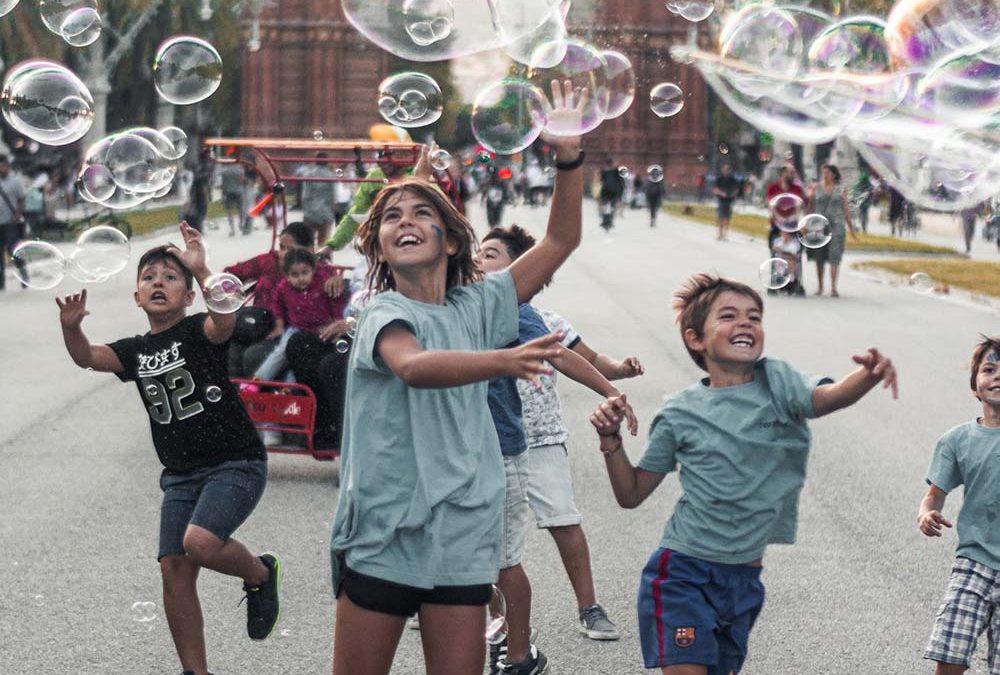
by Maude Leroux | Sep 20, 2021 | Uncategorized
In speaking to those who have experienced the dreadful illness that Covid19 brought to us, some really interesting things come to light from a clinicians view point. Even though “brain-fog” is not a medical diagnosis, the experience they describe is similar to having a cloud covering in their brain throughout the day. 25% of Covid19 sufferers describe a daily battle of trying to operate under this cloud and still experiencing the fatigue even long after the actual illness have left them. Some describe memory lapses and feeling confused in what should have been normal circumstances. Focusing on tasks takes more effort than before, leaving them not being able to function as optimally as they used to do. There are also reports of experiencing continued headaches.
According to www.healthline.com a study in January 2021 found increased levels of cytokines in the brains weeks after the infection had occurred. Cytokines are produced by your immune system and encourages inflammation. This may hinder theintegration of the nervous system, which certainly does sound alarming, especially in children already pre-disposed with integration difficulties before being affected by Covid19. There may be cognitive structural difficulties occurring as well. However, please note that the studies have been small and there has not been sufficient time yet to bring about a larger scale study. There is no data with regards to how temporary or not, this may be. Factors that may influence being susceptible to this impact may be the severity in which the virus impacted the person, in other words, how ill the person became. Early studies reveal symptoms lasting as long as 100 days post the viral attack. There is some indication of mood changes as well to consider.
From what can be gathered on the internet, the general guidelines to gain relief of this condition would be to make sure one gets enough sleep, exercise regularly, eat well and avoid tobacco or alcohol.
Apparently, researchers are still looking at who might be more susceptible to these lingering symptoms, and it will be an ongoing question to investigate. As we work with concussions at our center, the symptoms described sound very similar to those clients who came to us for concussion relief before Covid19 was on everyone’s lips. With each client we initially do a thorough investigation of their background. In their histories we detect an earlier history, prior to the first concussion, of possible neurological developmental delay. We do not have a research study and cannot provide statistical data, but it is a common factor we have observed and gleaned from our client profiles. We will not be surprised if researchers find commonalities between concussion and post Covid19 clients. Similarly, we will not be surprised if they find a pre-existing neurological developmental delay in the histories of those who experience this type of brain fog post Covid19. Please take note there are no espousing of facts here. At this stage there can only be speculation, even as our speculation is based on clinical understanding.
For those who do not find relief from their symptoms over time, we would suggest a clinical interview and / or clinical testing to gain access to what can be done about it. Our brain is neuroplastic and malleable and shown by research to have the capability to change. If we could change concussion symptoms, chances may very well be, that these residual symptoms of Covid19 can be helped as well. As I mentor globally, I have already heard that some clients have found relief through the Tomatis Sound Therapy that we do, but we have not had our own experience at this time. We will keep you posted if we do.

by Maude Leroux | Jul 5, 2021 | Uncategorized
I am currently working on a series of 4 sessions with regards to developing social skills and quite intensely pondering over the different aspects. So many families want their children to develop socially and are focusing on structures such as eye contact, greeting others, breaking into a conversation, talking about topics that interest others, to name a few. Though all of these are important to consider, the reality is that our social skill is innate and develops from deep within our subconscious brain. In fact, we are born with the “software” to connect with others. It is the drive for connection within the context of mirroring other’s behavior that drives social skill. And later, once we developed self-regulation, we can then develop self-reflection, which allows us to correct our social faux pas’.
We were at our friends home on Saturday evening and of course I relaxed as I truly enjoy being with them, but I must admit that my mind wandered a little as I observed the multiple levels and complexity of social skill that we take for granted in every-day life.
There was a moment when my friend (Olga) became really passionate in her discussion and her entire body language rose up to meet the intensity of her thinking and speech process. Her non-verbal communication completely relayed and supported what her verbal speech was saying. As her intensity rose, our other friend (Sandra) quietly met her gaze and nodded affirmatively at appropriate times. As Olga got the quiet affirmation from Sandra, her tone of voice, her body language started losing some of the intensity and her passion started to regulate to a more even disposition. So many pieces, in so very small space of time.
Eye contact was a big piece of this conversation, but not only to show interest, also to observe the subtle cues of true and honest interest, the “joining” in the spirit of the moment. We want to know if our message is ringing true from our conversational partner. We want to get the feedback of feeling “felt” by the other. The non-verbal skills that were exchanged said so much more than the actual words. Sandra did not have to say anything to give Olga the message she is being heard. It was in the softness of her gaze, the quick flicks of oral facial musculature and the affirmative nods. In fact, her non-verbal cues were so powerful, it actually tempered Olga’s passionate plea to understand her plight in regards to the topic. So much said, with so little emphasis on words.
In fact, being social of course includes verbal and language skill in order to be fully effective, but if it was only this, then we would have been perfectly happy simply to close our eyes during an entire conversation and receive the message by words only. Social skills start very early as the infant observes the face of his/her mother, while engaged in the nurturing reciprocity of cooing with each other. Mirror neurons cause the baby to want to follow the mother’s facial cues and the responsiveness of mother supports the pieces of agency that later develops into “if I cry in a certain way, my mother will respond in a certain way”. In fact, our intrinsic motivation to be social lies in these early experiences of reciprocal interaction.
We drink others in with our eyes, we time our responses at opportune moments. We formulate our next thoughts in a sequential order as the speaker is still speaking. We actually adjust our thoughts in preparation for speech while mid-sentence. Our working memory and praxis abilities work together in split second harmony to bring together one moment in time of shared meaning through interaction.
Much is being said of building empathy. It starts with the mirror neurons at birth and it develops into an ability to truly feel another’s pain, even if the event did not involve you personally. Much deeper than sympathy, it is empathy that makes us feel “felt”, feel like we are being heard.
How do we develop social skill in children with developmental delay?
- Focusing first on non-verbal exchanges, playing games without talking – extremely powerful
- Creating moments of shared meaning, where meaning drives the intention and the intrinsic motivation to be in the presence of the other
- Develop praxis, timing and sequencing skill to become motorically fluent in joining the body and speech together
- Create exposure to family events (going to grandma, to the beach) from which the child builds a repertoire that could serve as communication builders
- Expose the child to stories to build imagination
- Play, play, play – this is where it all comes together
Bottom line is that simply putting a child in a social skills group where skills are contrived in isolated exercises, could be one additional piece to this wonderful social puzzle, but it is not going to be the “Amen”! Children mirror our actions more than they mirror our speech. It is not what we say, it is how we say it and what we do when we say it! The social experience in the home is the most powerful tool in building social skill.
For more info on this webinar series: https://maudeleroux.com/shop/what-does-it-mean-to-be-social-session1/

by Maude Leroux | Apr 6, 2021 | Uncategorized
2021 marks our 20thanniversary as a practice at A Total Approach. What a milestone! It started as an idea to be involved in the lives of 20 autistic kids, though has evolved into several different branches of assessment and intervention, including Autism, Dyspraxia, Reading and Learning Differences, ADHD/executive Functioning, and Attachment / Trauma family support. I thought then that A Total Approach meant working across different environments such as school, home and center, but now know it has become so much more for children and families. We have been through many celebrations, trials, as well as very difficult times, including the current pandemic, though we still manage to survive and some years, thrive! I will admit that there were times Charl and I wanted to give up and move to different grounds, but in my reflection today, I know that this is what is meant to be. I remember many therapists in whom we invested so much time and funding, only to have the call of motherhood pull them away. Of course, we wish them well, but oh, to start all over again, time and time again! I am so grateful to those who are still with us since those early years, Angela, Anne, Janine and others since then. We have truly created a unique experience for families. Some call it their “one stop shop”, though we smile and know how much we need our colleagues in other disciplines to form a village around our children.
And yes, for a little while in their lives each child is a part of our lives as we think, plan, and work together for each child to become the best versions of themselves they could be! Each time a child did not progress as expected, we invested in more training, more research and more books so we could understand what piece of the puzzle we may be missing. I have each of those children to thank for being able to open the Maude Le Roux Academy so we could teach others what we learnt. So much to feel grateful for. Whenever I feel down, perhaps going through one of our difficult times, I feel lifted up by testimonials such as this recent one below.
“How do I love A Total Approach? Let me count the ways!
My 9year old 4th grade daughter has had some school challenges off and on since the beginning. However, she always made enough progress to not really raise any red alarm bells. As she grew older, I could see her frustration level grow with her. If she could answer any question orally, she’d be an A+ student, however, with each passing grade year, the expectations to communicate thoughts in writing became higher and higher. She was reading on grade level, and could do math in her head at an exceptional level, and again, could provide strong and detailed answers to questions orally, but this simply didn’t translate into strong written output. She struggled to align the numbers correctly for math equations, and would often get an answer wrong due to misalignment. Her handwriting was atrocious as she seemed to have no awareness of the lines and margins on wide ruled paper, and her spelling was not the best, there were even letter and number reversals. This all felt a little scary to me as a parent, and her struggles were starting to impact her self-esteem and confidence. Enter ATA. They offer a thorough evaluation that will clearly identify the challenges, as well as an action plan to remediate. We learnt that our daughter was missing some key foundational skills that so many other academic skills need to be built on. Following just one intensive, and weekly OT sessions, there were obvious and measurable results. Our daughter could align numbers correctly, her print went from large and sloppy to much smaller and neater. She showed an awareness of lines and margins within which she was mostly able to keep her writing within. I can’t remember the last time I saw her reverse a letter or number, and she rarely makes a calculation error as a result. Her stamina to write has grown exponentially, as well as her ability to add details to her thoughts. She is more organized in keeping track of her school work. Most importantly, her output is starting to match her strong intellectual ability, and her confidence and self-esteem are recovering as a result. Going to ATA was an investment in my child’s well-being and future!”
For us, for me, it is all about the child’s function and yes, over the years our adult client numbers have risen as well. It does feel great to be able to provide a family with new hope, new understanding of their child and each time a child succeeds, we celebrate with them even as we are sad to say goodbye. Yes, our therapies are intense and it is not your every-day practice of once per week therapy for the next 5 to 10 years. No, we base our programs on neuroplasticity research which clearly states that high intensity, high frequency intervention changes the brain and we have countless families now that can attest to this. As intense as it is for families, it is as intense for us in our ability to maintain the kind of training and scheduling we need to do to keep it all going. So much easier to be practice of only once per week therapy. Each time we do not have an intensive scheduled it requires 10 to 20 hours of therapists being paid, even as we receive no income. The financial burden weigh heavy at times.
But each time I walk in the waiting room and see a child smile, or walk down the hallways and hear kids laugh from their bellies, or see a parent cry tears of joy, I know deep down that this is all worth it. That this is exactly what I was meant to do, create change that will last. I am humbled by so many kids and families that have trusted us over the years and for them I say thank you!!
Because of you, I am a better therapist, ………..and a better person.

by Maude Leroux | Feb 8, 2021 | Uncategorized
A couple of years ago, The American Pediatric Association issued a directive to all pediatricians to also consider recommending play to the families under their care. I was elated at the notion at first, then saddened that we are currently living in a world that a natural developmental skill is being pushed aside as we need to focus more on productivity and task achievement. Educational systems would note that play is not educationally “relevant”. Parents get the messagethat play is “less important”. Yet, in the larger scheme of school readiness and relatedness, play is instrumental in its’ contribution to development.
Play and Math:
We are born with a number sense that supports us in building an understanding of concepts such as “more or less than”. Research is also clear that visual-spatial development is essential in acquiring math skills. The simplistic view is to think that doing puzzles alone is going to create visual-spatial skill, or that drawing and coloring on paper is going to build visual-spatial skill. The only way a child develops visual-spatial skill is by moving their bodies through the space they are in. When they engage in “building a fortress” with their friends in the backyard or create a house from a large cardboard box, they have to visually contemplate their construction from their minds’ eye. This visualization includes “seeing” the construction as well as consider the different dimensions of the project from all angels with three-dimensional capacity. The construction, planning of space and material, as well as the consideration of distances between objects, are all building foundational skills for becoming proficient in math later. And the more abstract the child can visualize, the more they can figure out the complexities of math later in their academic career. Are video games enough to build this skill? No, video games are good at building cognitive skill, the mind-mapping is essentially done for the player. It is the use of the body in actionwith a sufficient sense of body awareness that truly builds this proficiency.
Play and Reading:
We are not born with reading skill, we need to acquire this skill through development. When caregivers expose children to stories, they also start the process of building vocabulary, imagination and the process of sequencing a beginning, end and middle of a story. As children first re-create stories they have been exposed to, with their own version of “beginning-middle-and end” sequences,they start to build the capacity of reading comprehension later in life. They also play out their own sequences of their “lived” experiences, such as going to the doctor, the store or feeding the baby. Putting their own experiences into the play enriches the “meaning making” of life and figuring out important emotional developmental milestones that support abstract symbolic understanding of increasingly complex reading material as they traverse their path through different school grades. Concepts are formulated, authority and boundaries are understood, all the while learning to separate reality from fantasy. They also build logical, sequential thinking in the imaginary, abstract world, that leads to understanding the point of view of the author, building empathy for the different characters as well as later building their own point of view separate from the author.
Play and Executive Functioning Skill:
Children need executive functions to plan, organize, be goal oriented and self-regulated in their projects for school. Executive skill requires the same development of what is required for reading and math and also more. When they play and work through themes of power, frustration, overcoming obstacles and figuring out important relationships in their lives, they are steadily working on emotional stability and self-regulation in times of difficulty. The balance between feeling emotions and being able to plan around and through them, together with the modelling of caregivers during difficult times, sets up a regulatory ability that will support perseverance, as well as sustain attention in the learning situation. Children have to negotiate each other’s thoughts and feelings in play.They use divided attention as they negotiate each other’s plots and ideas, while maintaining their own idea. They learn to shift their attention to another idea, all the while building working memory capacity with sustained attention.
We have scratched the surface in this writing. Is play crucial? Absolutely! It is very important for academic skill and the gaps in learning can very readily be traced back to the types of play a particular child engaged in during developing years. Is a child ever too old to revisit what they may have missed? No. We may play in a different way when we are older, but we actually remain playful throughout life, one of the lovely gifts that helps to bring joy and balance into the busy productivity of every day life. If you want to know more about the research, as well as more depth on this matter, you can find a 4 session recorded webinar series here: https://maudeleroux.com/shop/why-is-play-crucial-for-building-skill-recording/
Call anne@atotalapproach.com to schedule an initial phone consultation and talk to us about play and achievement in your child.

by Maude Leroux | Jan 4, 2021 | Uncategorized
I am sitting here at my desk in my new home office that my husband built for me over the past 2 weeks. Looking out through the window, I see a bleak morning sun, trying to peak through the gray, overcast sky. I think about the year we have just left behind and I realize how much the Covid19 pandemic has cast the same “gray-ness” over 2020. Just like so many others across the globe, I want to shake it off and focus on the new year and the promises it brings. But , just like in the movie “Inside Out”, we also have learnt from the character “Sadness”. It is because we go through difficult times that we can again appreciate what we do have as we also discover our resiliency and our ability to overcome. This is where my thoughts turn to the children we serve in our work every day.
Resiliency
All children go through growth spurts physically, emotionally and socially. In the early developing years there is a massive growth period in the brain, caused by a multitude of new experiences that have to be made sense of. The growth is accompanied by varying emotions about this “new world” and the adaptive response to the environment accompanied by the relationships supports this build-up towards autonomy and a sense of self that confirms: “I can!” Children build this sense of self and autonomy based on their ability to solve the dilemma’s they face. “Why is she looking at me like that?” “What would happen if I do this?” “How can I plan to get what I want?” We are born with a natural propensity to want to move and develop ourselves. The milestones come and go in typical development. Each milestone, each growth spurt is an achievement providing a sense of purpose while creating a willingness to take new risks and push onward. During teenage years, we go through another opportunity to gain this sense of where we belong in this world. A new stage of unfolding occurs with hormonal surges that turns many lovely children into little aliens who seem to need nothing and everything from their parents at the same time. Parents laugh, smile, cry, support, and yes, also become frustrated and angry and all the while that developing brain is building problem-solving skills that is feeding their “toughness”, their resiliency. As parents we may say a lot, but it is through our doing that the child learns about life, builds expectations and feeds their psyche with regards to relationships.
Atypical Development
If these milestones are celebrated, validated and emotionally anchored with a secure base in both parents, we have good reason to believe that this sense of autonomy will be reached. When children are atypically developing, this sense of wonder and curiosity is disturbed. There is a tendency to shy away from risk taking or take on risks impulsively without planning. The same milestones celebrated in others, arrive at a later date and does not look so “cute” any longer. I frequently wonder at the notion of “catching up” that I believe to be a great goal in itself, but not in the way I observe it play out. Children struggling with developmental delay that are overthrown with expectations and demands to do the catching up, frequently overwhelming them even more in the process. And where is the sense of autonomy inside of the self then? We do not build important milestone based on others knowing what is “good or better for you”. The autonomy that brings about resilience is build upon our own investigation and curiosity about this world. Our curiosity drives exploration; exploration drives problem-solving; problem-solving drives autonomy; autonomy drives resilience.
What do we do?
- Build a team of professionals around your child that has your child’s interest and journey at heart. A team that can guide you when to push, and when to hold back.
- Observe your child more than telling them what to do. Listen to what they are not saying and respond to their needs emotionally
- Do not become involved in intellectual battles of the will, rather understand that your child has an emotional need to be anchored by you, to feel secure and safe.
- Do not get caught into the trap that you need to deal with “this or that behavior today” otherwise my child will become a delinquent. Rather foster their emotional growth in the moment to enable them to not make that decision when the time comes
- Understand that the child is not truly looking for answers or solutions from you, but rather looking for your emotional response that could become part of their own repertoire. Lead them into solving their own problems, so they can own it.
The rain started falling now as the day dawns in my study. I always see rain as a blessing from above. It washes away so many hurts, past experiences and brightens the world with glistening droplets hanging from the trees. We can all start fresh, after all, it is a new year. Make this the year that we focus on building your child’s resilience so that whatever they face, they will face with: “I can!”
Contact anne@atotalapproach.com if you would like for us to support you with this goal.






Recent Comments